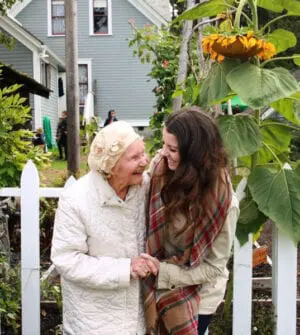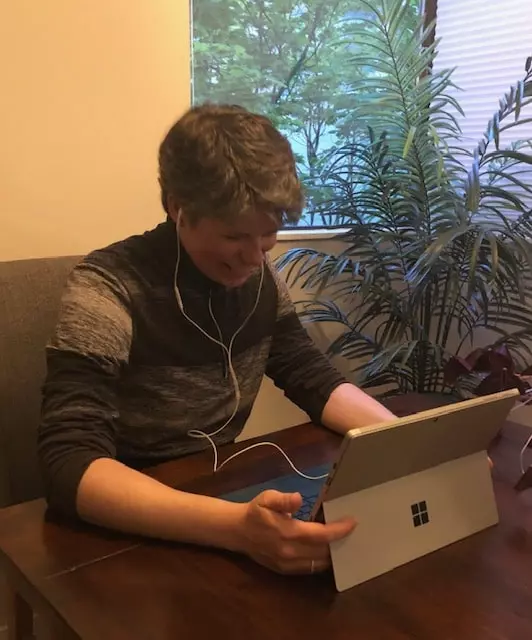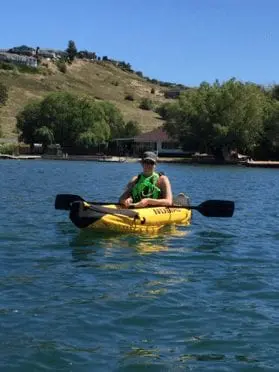I was skeptical about the online learning experience at first. Even after 5 years in university, I had never taken a single online course before. I was used to the traditional method of schooling: show up to a building, have someone talk at you for an hour, juggle 4 or 5 different subjects at once, and take your homework home to complete.
Online is completely different. Sometimes, when you first start a class, you have no idea what your teacher is like or what they want for the assignments. You have to wait almost a whole week until you meet them online. The Adobe connect sessions can have technical problems as everyone might not be at the same tech-savvy level you are when it come to computers. Some weeks it is a challenge to complete everything on time. And sometimes, it can feel a bit lonely. That is, until you actually log on. If you’re as lucky as I am to have amazing classmates and teachers, you’ll know pretty quick that you are not alone. The forum posts allow you to communicate anything you are struggling with and there’s always someone else who is also struggling and someone else who can help.
Adobe connect sessions are not my favourite part of online learning but they are an important part of the overall online learning experience. For a program that is so flexible in every other way, this is the only piece that seems rigid to me. However, they are an excellent way to connect with your peers and professors. I can appreciate this more ‘face-to-face’ aspect of learning and I know for some of my classmates, this is the type of connection they thrive on.
I am a very visual learner. I have to ‘see it to believe (or learn) it’. Which actually makes online learning a pretty good environment for me. Much of my learning is reading coupled with video lectures. And the timeline to do the work in is pretty flexible, which works well with my schedule. I don’t know if online learning works for everyone but I do know it can work for a lot of people: if you have kids at home or a full-time job, volunteering or other daytime/nighttime obligations, this is a good fit for you. If you don’t need a lot of motivation to get the work done and you are organized with your time, this is also a good fit. I think with the different material delivery methods, it can probably work for all types of learners, as well.
And I know what you’re thinking: how can you study Therapeutic Recreation online? Aren’t you supposed to be learning how to interact with older adults? It’s true; I had similar doubts when I started the program. But the online learning environment is actually pretty interactive: you’re talking with classmates daily and exchanging information and ideas continuously. And Stenberg has set up a great chance to do some hands-on work with your practicums at the end of the program. It’s an excellent way to take everything you’ve learnt and apply it to real situations under the care of a learning environment. I can’t wait for practicum, it will probably be my favourite part!
Check out this video of our Therapeutic Assistant Diploma Program (Gerontology Specialization).










